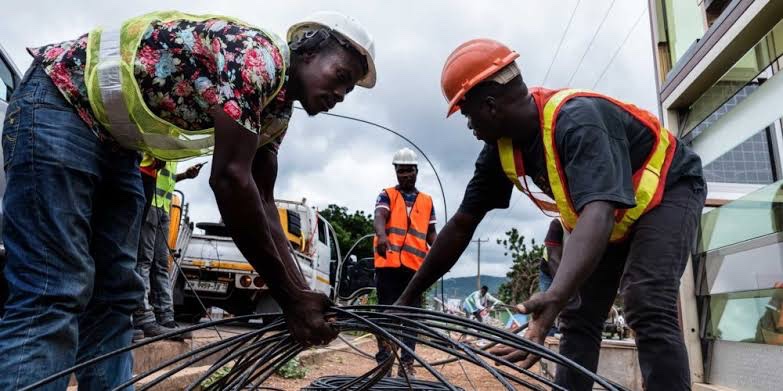
Dr. Bosun Tijani, Nigeria’s Minister of Communications, Innovation, and Digital Economy, has announced a \$2 billion project to roll out 90,000 kilometers of fiber optic infrastructure across the country, set to begin in the last quarter of 2025.Tijani also noted significant growth in Nigeria’s Communications and Digital Economy sector since President Bola Ahmed Tinubu took office.
He reported that the sector attracted \$191 million in foreign direct investment (FDI) during the first quarter of 2024—a ninefold increase compared to \$22 million in the same period of 2023. This information was shared during an interview for an upcoming State House documentary marking President Tinubu’s second year in office.
Tijani emphasized the sector’s strong workforce development, driven by the 3 Million Technical Talent (3MTT) initiative. “These foundational reforms, along with advancements in artificial intelligence (AI) and a thriving startup ecosystem, have positioned Nigeria as a leading digital economy globally,” he said. Comparing FDI figures, Tijani explained, “In Q1 2023, the sector saw about \$22 million, but by Q1 2024, with the current administration’s momentum, that figure rose to \$191 million. This growth continued in Q2, climbing from \$25 million in 2023 to \$114 million in 2024.”
The minister highlighted that since its launch in October 2023, the 3MTT program, aimed at building a tech-skilled workforce, has already trained more than 117,000 Nigerians in digital skills, far exceeding its original goal of 30,000. “By last year, training had surpassed 117,000 individuals. With another 35,000 currently being trained, the program is approaching 10% of its 3 million target. We hope to achieve the full goal during the remainder of this administration,” he said.
Regarding connectivity, Tijani revealed that Project Bridge, focused on deploying 90,000 kilometers of fiber optic cable, will kick off in the fourth quarter. “We are preparing a \$2 billion investment to guarantee affordable, high-quality internet access to every Nigerian, regardless of where they live. Increasing connectivity hubs by just 10% could drive a 2.5% boost in GDP,” he noted.
Tijani also celebrated Nigeria’s ranking among the top 60 countries worldwide for AI readiness, as well as the development of a homegrown large language model (LLM). He highlighted the launch of the AI Collective platform, supported by key partners such as Pierre Omidyar, Google, and Microsoft, to promote AI collaboration and innovation.
For the first time in Nigeria, the ministry has funded 55 academic researchers to study tech applications in sectors like agriculture, healthcare, and education. Additionally, ₦300 million was invested in 10 startups using AI and blockchain to improve agricultural productivity. At the Nigeria Startup House in San Francisco—part of an initiative aiming to attract \$5 billion in startup investments—Dr. Tijani said, “Our objective is to secure \$5 billion for Nigerian startups through the Startup Pact and Trade Desk programs, connecting local tech companies to global markets and government contracts.”
He also revealed that over 500 government technologists have been trained in AI and Digital Public Infrastructure (DPI), and that the groundbreaking Digital Economy Bill has passed its initial reading in the National Assembly.To close connectivity gaps in rural areas, the minister projected the deployment of 7,000 telecom towers, aiming for 98% coverage nationwide. The Federal Executive Council has already approved this project.
Tijani described recent progress on Right-of-Way (RoW) issues as transformative, with 12 states adopting zero-rated RoW policies.These initiatives are aligned with the National Broadband Plan’s target to reach 90% internet penetration by 2025, up from 48% in 2024.
He forecasted the sector’s GDP contribution rising from 16% to 22%, stating, “An increase of three to four percent in GDP contribution from this sector will drive unprecedented economic growth. Technology enables us to connect governments and citizens more effectively.” Tijani concluded by emphasizing the government’s commitment to lasting reforms: “We are not focused on short-term wins. Our aim is to deliver enduring changes that will transform Nigeria’s economy for generations.”








